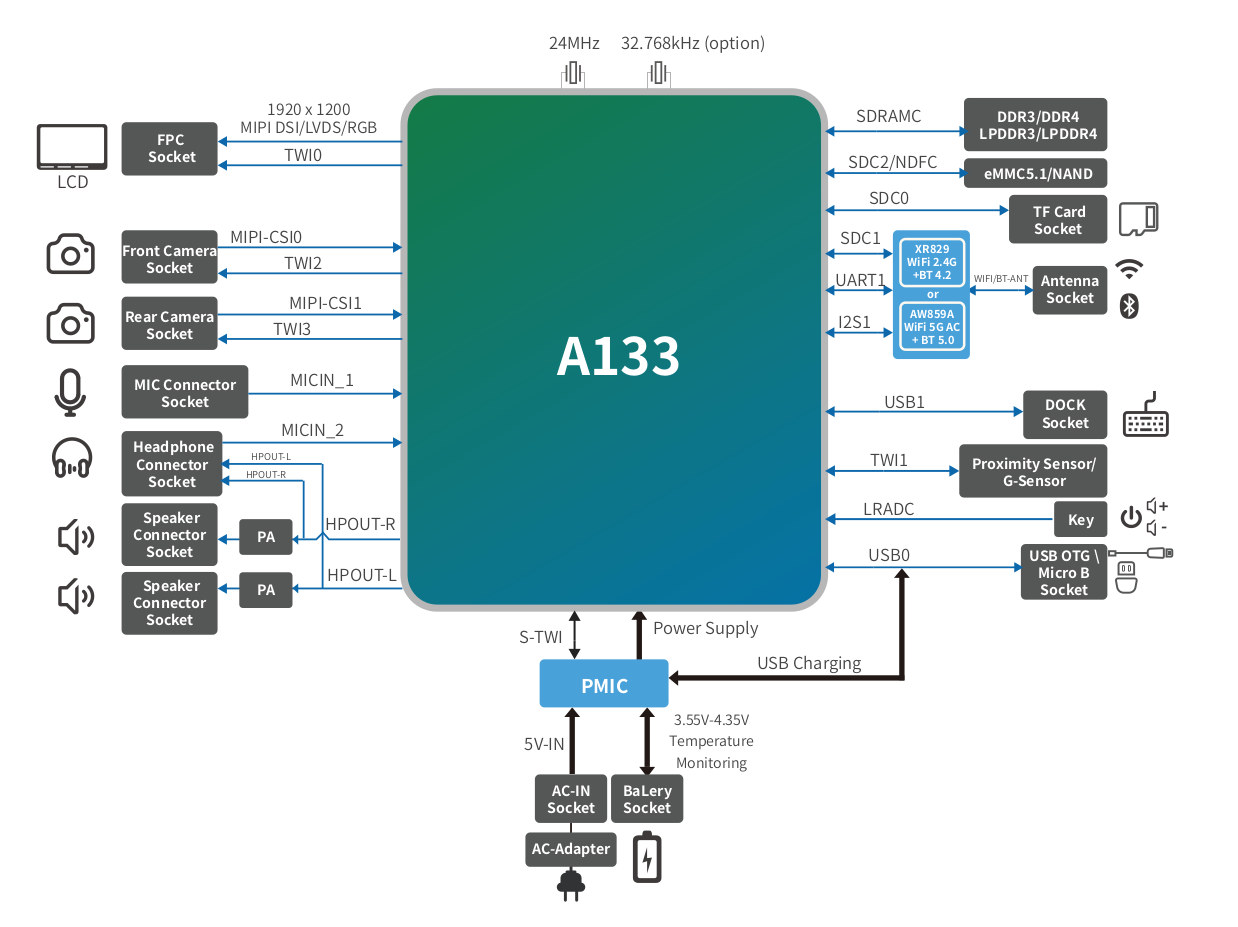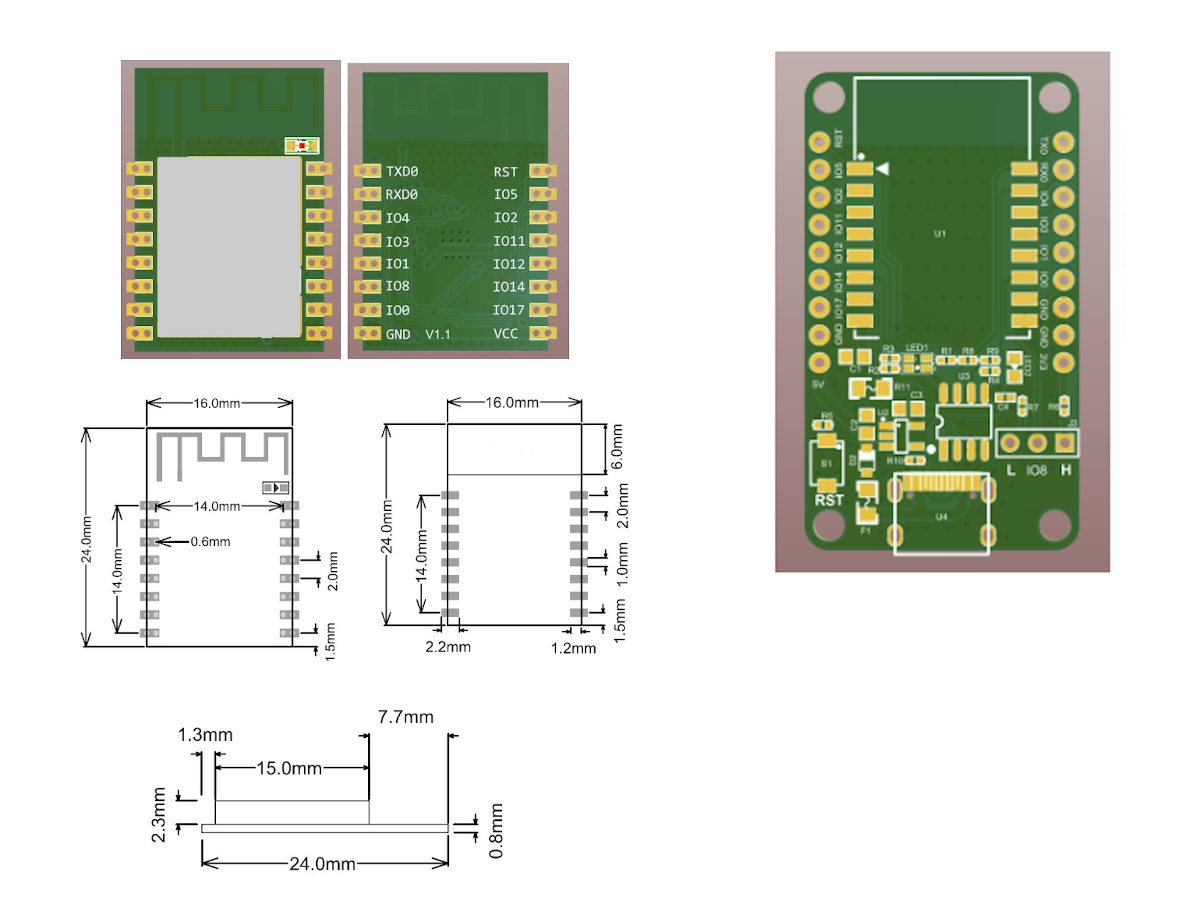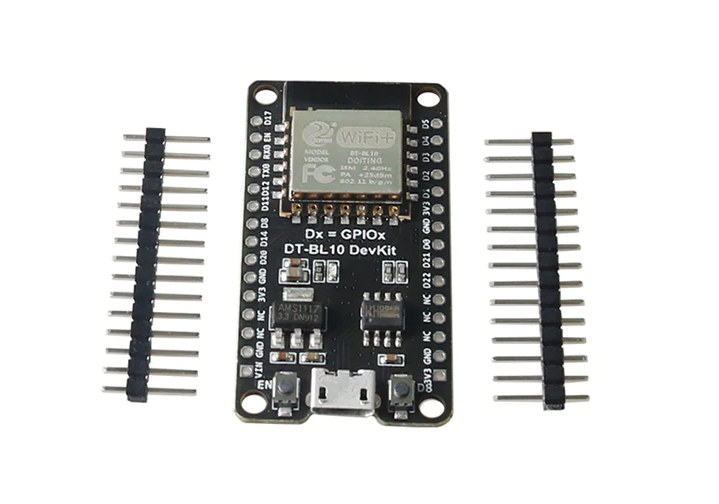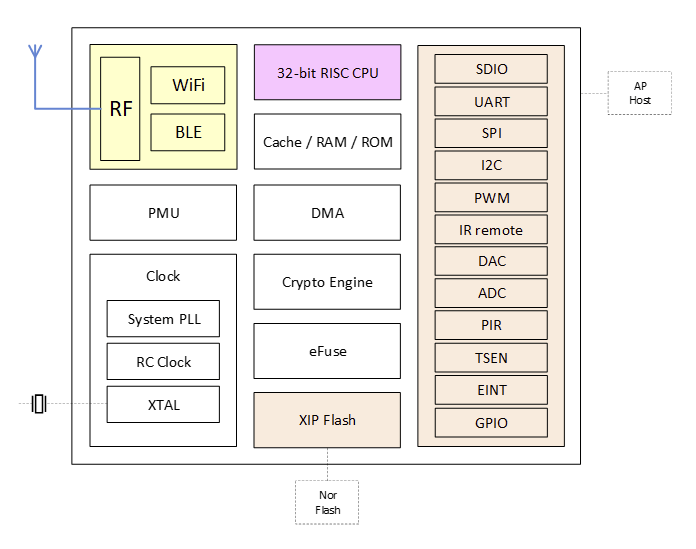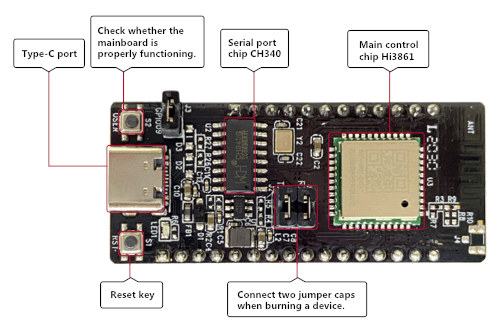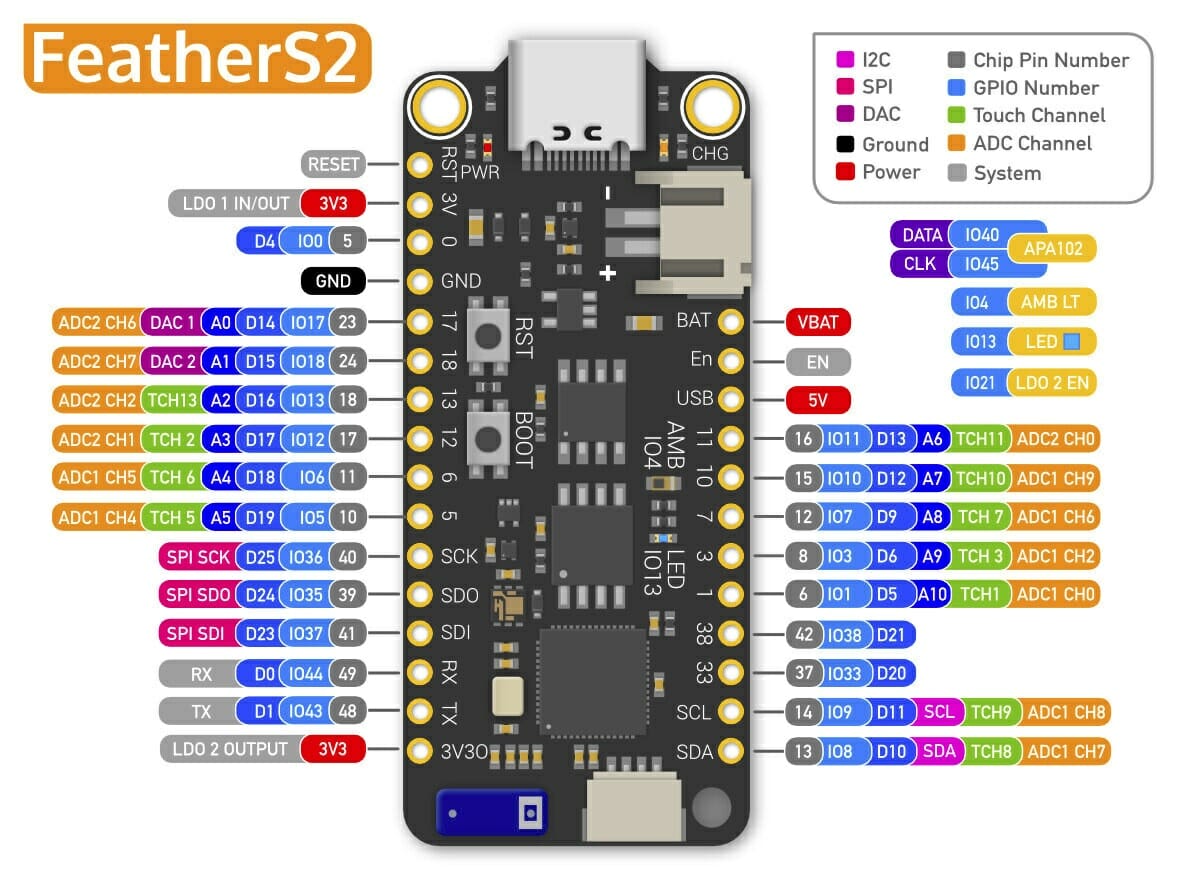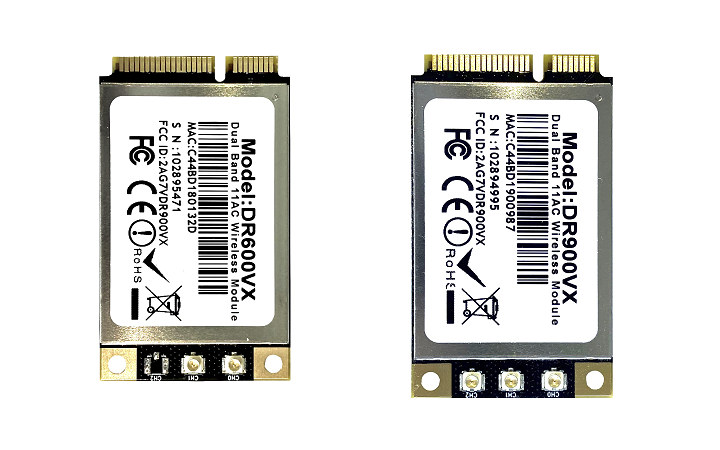Last year, Allwinner published an updated roadmap for tablet processors that included A100, A200, and A300 SoC’s. None of those have been launched yet, but I’ve just noticed the Allwinner A133 quad-core Cortex-A53 processor showed up on the company’s website. That’s yet another entry-level processor coupled with a PowerVR GE8300 GPU, but you’d get support for Android 10, instead of the older Android 7.1/8.1 SDK provided for the earlier Allwinner A-series tablet processors. This time around, the company also pairs A133 processor with its own wireless chips, either XR829 WiFI 4 and Bluetooth 4.2 chip, or AW859A dual-band 802.11ac WiFi 5 and Bluetooth 5 chip. Allwinner A133 specifications: CPU – Quad-core Arm Cortex-A53 @ 1.6GHz with 32KB L1 I-cache + 32KB L1 D-cache per core, 512KB L2 cache, and CoolFlex power management architecture GPU – Imagination PowerVR GE8300 with support for OpenGL ES3.2, Vulkan 1.1, OpenCL 1.2 Memory I/F – […]
The quest for a blob-free WiFi & Bluetooth stack for BL602 WiSoC
I thought I was done writing about Bouffalo Lab BL602 WiFI & Bluetooth RISC-V SoC for a while after first covering the chip itself, and then an inexpensive BL602 development board this weekend. But the BL602 SDK has shown up in various Github repositories, including Bouffalo Lab’s own bl_iot_sdk repository, and as more people are looking into it, there’s now an effort to develop a fully open-source blob-free WiFi & Bluetooth stack for BL602, and other Bouffalo Lab WiFi and/or Bluetooth wireless chips. Last day we communicate with Bouffalolab, finally they release the SDK of BL602 (RV32 chip of wifi+bt), all code is open, except libblecontroller.a, libatcmd.a, libbl602_wifi.a (while they have all symbol inside)https://t.co/giHsQ4ezXxwe have a fork too https://t.co/FiaAIxLBc8 — Sipeed (@SipeedIO) October 27, 2020 First, Sipeed says the code is mostly open-source except for three libraries: ibblecontroller.a, libatcmd.a, libbl602_wifi.a, all of which are un-obfuscated, and easy to disassemble. Then […]
BL602 IoT SDK and $5 DT-BL10 WiFi & BLE RISC-V development board
Yesterday, we wrote about Bouffalo BL602 32-bit RISC-V WiFI and Bluetooth LE wireless SoC that should eventually compete with ESP8266 in terms of price but with more features, higher performance. and more resources like memory and storage. At the time, I noted I could not find any tools for the processor, but I was informed a BL602 SDK (Doiting_BL) and documentation had already been released on Github. The basic readme and a user manual are already available in English, but the main documentation is still in Chinese with various examples to configure GPIO, YART, WiFi, and Bluetooth. You’ll find the documentation in Github, as I could not find a website yet:
|
1 |
git clone https://github.com/SmartArduino/Doiting_BL |
Go to Doiting_BL/docs/html folder and then open index.html in your browser to access the documentation. The SDK works both in Windows and Linux and relies on either Eclipse & OpenOCD or Freedom Studio & OpenOCD. A graphical software […]
BL602/BL604 RISC-V WiFi & Bluetooth 5.0 LE SoC will sell at ESP8266 price point
Hisilicon Hi3861 may be the first RISC-V WIFI SoC we’ve reported on, but due to political uncertainties and security concerns, supplies may not be available outside of China. So alternatives are welcomed, and Nanjing-based Bouffalo Lab (not a typo, 博流智能科技 in Chinese) has recently introduced BL602 and BL604 32-bit RISC-V WiFi and Bluetooth LE SoC for low-power IoT applications that are supposed to compete against ESP8266 in terms of price but with higher performance and additional features. The BL602 will also be integrated into an upcoming Sipeed Longan-series board, and potentially a new IoT board from Pine64. BL602 / BL604 key features & specifications: MCU subsystem – 32-bit RISC-V CPU with FPU with dynamic frequency from 1MHz to 192MHz, L1 cache Memory – 276KB SRAM on-chip Storage 128KB ROM, 1Kb eFuse, and optional Embedded Flash on-chip XIP QSPI flash support Wireless Wi-Fi 4 – 802.11 b/g/n @ 2.4 GHz Bluetooth […]
Hi3861 based HiSpark WiFi IoT development board supports LiteOS and HarmonyOS
HiHope HiSpark WiFi IoT development board features Hisilicon Hi3861 microcontroller with 2.4 GHz 802.11b/g/n WiFi 4 and supports Huawei LiteOS as well as HarmonyOS. Equipped with 2MB flash and 384KB SRAM, the board targets smart home applications, and ships with a baseboard to help with development. HiSpark board specifications: MCU – Hisilicon Hi3861 32-bit microcontroller @ up to 160 MHz with 352 KB SRAM and 288 KB ROM, 2 MB flash memory, and WiFI 4 connectivity; QFN-32 5x5mm package WiFi 802.11b/g/n standard up to 72 Mbps @ HT20 2.4 GHz frequency band (ch1-ch14). Station (STA) and access point (AP) modes with up to 6 clients for the latter WiFi mesh with up to 256 nodes Security – WPA, WPA2 personal, and WPS 2.0 PCB antenna USB – 1x USB Type-C port for power and programming via CH340 chip Expansion – 2x headers with up to 2x SPI, 2x I2C, 3x […]
FeatherS2 Board Brings ESP32-S2 to Adafruit Feather Form Factor
We’ve covered a fair number of development boards following Adafruit Feather form factor in the last year or so with products such as QuickFeather Cortex-M4 + FPGA board, OrangeCrab (Lattice FPGA), nRF9160 Feather providing LTE IoT & GPS connectivity, and other boards. But here’s yet another Adafruit Feather themed board that has just launched: FeatherS2. The tiny board is equipped with the latest Espressif Systems ESP32-S2 WiFi SoC, 16 MB SPI Flash, 8 MB PSRAM, several I/O, and a USB-C port for power and programming. FeatherS2 key features and specifications: SoC – ESP32-S2 single-core Tensilica LX7 processor @ 240 MHz, RISC-V ultra-lower power co-processor, 320 kB SRAM, 128 kB ROM Memory – 8 MB extra PSRAM Storage – 16 MB SPI Flash Connectivity – 2.4 GHz Wi-Fi – 802.11b/g/n with 3D antenna USB – 1x USB-C port for power and programming Sensor – ALS-PT19 Ambient Light Sensor Expansion 16 + […]
UL-Certified TP-Link Kasa Smart Plug with Dual Outlet Sells for $19.99 (Promo)
WiFi smart sockets to control home appliances have been around for a few years, and one of my favorite companies is Sonoff as they offer a variety of affordable smart plugs pre-loaded with eWelink firmware and compatible with open-source firmware like Tasmota and ESPurna. The company is also attentive to safety. communicate issues with customers, and recently wrote a post entitled “Safety is our responsibility” where they detail all steps taken to make sure their mains connected device sare safe to use. Sadly that does not include safety certifications like UL/ETL, or TUV which may have implications for your home insurance depending on where you live, and for peace of mind, it’s always good to have a third verify your design for safety. Which brings me to the main point of this point, as a UL-certified dual-outlet smart socket, namely TP-Link Kasa Smart Plug, is currently on sale for $19.99 […]
Wallys WiFi 5 (802.11ac) mini PCIe cards deliver higher Tx power and performance (Sponsored)
Wallys is offering two mini PCIe cards to add WiFI 5 (802.11ac) to existing gateways, computers, or boards. Both 802.11ac modules are powered by Qualcomm Atheros QCA9880 chipset, with DR600VX mPCIe module delivering up to up to 867Mbps thanks to 2×2 MIMO, and DR900VX mPCIe module up to 1.3 Gbps using 3×3 MIMO technology. Both modules share most of the same key features & specifications: Chipset – Qualcomm Atheros QCA9880 wireless local area network (WLAN) system-on-chip (SoC) for 5 GHz 802.11ac or 2.4/5 GHz 802.11n WLAN WiFi 2.4GHz max 26dBm & 5GHz max 25dBm output power IEEE 802.11ac compliant & backward compatible with 802.11a/b/g/n IEEE 802.11d, e, h, i, k, r, v time stamp, and w standards DR600VX – 2×2 MIMO technology up to 867 Mbps DR900VX – 3×3 MIMO technology up to 1.3 Gbps Supports Spatial Multiplexing, Cyclic-Delay Diversity (CDD), Low-Density Parity Check (LDPC) Codes, Maximal Ratio Support for […]


